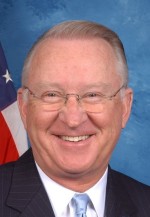 As the world transitioned to a new year, Americans were reminded that we remain a nation at war. On Christmas Day, the act of one individual solidified this reality: America faces a determined and ruthless enemy who is committed to killing innocent civilians and destroying our way of life. This enemy resides in ungoverned spaces like those found in Afghanistan, Pakistan, Somalia, and Yemen and exploits our advances in mass communication and modern means of travel to mobilize and execute missions of hatred.
As the world transitioned to a new year, Americans were reminded that we remain a nation at war. On Christmas Day, the act of one individual solidified this reality: America faces a determined and ruthless enemy who is committed to killing innocent civilians and destroying our way of life. This enemy resides in ungoverned spaces like those found in Afghanistan, Pakistan, Somalia, and Yemen and exploits our advances in mass communication and modern means of travel to mobilize and execute missions of hatred.
For the last decade, Congress and the Executive Branch have worked together to develop the necessary policies and tools to take on this global, multifaceted, and constantly evolving threat. Like the threat, America must refine these instruments in order to keep this war out of America’s backyard. As our nation’s Commander-in-Chief, President Obama plays the critical role in guiding the United States during wartime and must send a clear message to our enemies and allies that America will not stand down. We will take the fight directly to those who seek to do us harm.
On December 1, 2009, with his speech at West Point, President Obama officially took ownership of the war in Afghanistan and the broader war on terrorism. He correctly reminded the country and the world that al-Qaeda — operating from safehavens in Afghanistan — planned and launched the 9/11 attacks on the United States. Al Qaeda does not act alone. They are supported by the extremist Taliban who continue to provide sanctuary within its tribal homes in Afghanistan and Pakistan and are intimately linked to a robust terrorist network in that part of the world.
If America and our allies fail to defeat – not only degrade – the Taliban in Afghanistan and the Pashtun tribal belt in Pakistan, there is the possibility that al-Qaeda could re-formulate to its pre-2002 strength and launch attacks against the United States, our allies, and our interests once again.
If America and our allies fail to defeat – not only degrade – the Taliban in Afghanistan and the Pashtun tribal belt in Pakistan, there is the possibility that al-Qaeda could re-formulate to its pre-2002 strength and launch attacks against the United States, our allies, and our interests once again.
The President rightly committed the Unites States to a counterinsurgency strategy designed to separate the Afghan people from the threats posed by the Taliban and al-Qaeda. Just as important, the President announced that the top military commander in Afghanistan, General Stanley McChrystal, will be provided most of the military forces he needs to implement his strategy. While many have questioned whether the President has provided the resources necessary to win in Afghanistan, General McChrystal personally reassured Congress that he has the resources to win. More importantly, he committed to requesting additional troops if they are necessary to successfully complete the mission.
Now the hard work has begun. Logistically, deploying 30,000 additional forces is a heavy lift. Politically, in the coming weeks and months, some of my colleagues in Congress will attempt to either narrow or end our troops’ mission in Afghanistan — even before the full 30,000 troop surge arrives in the country. While Congress must continue to exert its oversight role to ensure General McChrystal and our troops have the resources they need to win, I will call on my colleagues to support our brave troops by providing them the tools and time they need to complete their mission. We must resist the temptation to judge progress or success in Afghanistan against the Washington political clock. Events and conditions on the ground must drive our decisions from this point.
Afghanistan and Pakistan offer the most relevant and immediate examples of what criteria must exist for al-Qaeda and its terrorist affiliates to operate most effectively: ungoverned or under-governed swaths of land and the lack of strong local governance. As evidenced in Iraq’s al-Anbar Province in 2006 – 2007, al-Qaeda will step into the vacuum of ungoverned space in a country; set up training facilities; intermingle, threaten, or coerce the local population into cooperation; and then launch attacks to further destabilize the “host” government or harm United States interests.
The attempted Christmas Day bombing of Northwest Flight 253 has drawn renewed attention to Yemen — a country roughly twice the size of Wyoming located on a key international transit lane between the Red Sea and the Gulf of Aden. The Yemeni government is currently fighting at least two insurgencies within its borders — one against al-Qaeda Arabian Peninsula and the other against Shiite extremists. Yemen is also the current home of the al-Qaeda cleric and recruiter who had communicated with Fort Hood shooter Army Major Nidal Malik Hasan, and the site of the 2000 al-Qaeda attack on the USS Cole that killed seventeen American sailors.
The failed Christmas Day terrorist attack underscores the importance of the current efforts by the United States to work with foreign governments to train, equip, and professionalize their security forces — both military and police. For example, the United States Departments of Defense and State have allocated approximately $70 million to help the Yemeni government professionalize its force in order to defeat al-Qaeda Arabian Peninsula and gain control of the entirety of its territory. By working with host countries to develop their security forces, it reduces the likelihood that the United States will have to commit its sons and daughters to completing the mission.
The failed Christmas Day terrorist attack underscores the importance of the current efforts by the United States to work with foreign governments to train, equip, and professionalize their security forces — both military and police.
In addition to effective security assistance tools, the United States must commit to treating those terrorists captured in the ongoing war on terrorism, such as Christmas Day bomber Umar Farouk Abdulmutallab, as enemy combatants — not common criminals. On January 5, the U.S. Court of Appeals for the District of Columbia Circuit upheld the right of the United States government to detain criminals suspected of committing terrorist acts. The decision — in placing a higher value on war powers over the individual rights of detainees captured in the ongoing war on terrorism — reaffirms the belief that the laws of war are the appropriate foundation by which to continue to detain and try terrorists who are captured by the United States.
On January 6, the top Republicans on the House Appropriations, Intelligence, Homeland Security, and Judiciary Committees joined me in calling on the President to designate Abdulmutallab as an unprivileged enemy belligerent and detain and prosecute him according to the laws of armed conflict — not the criminal justice system. In the war on terrorism — like any other conflict — combatants need to be thoroughly interrogated by the Intelligence Community before they encounter counsel, let alone a public defender. All terrorists captured in the war on terrorism should be charged as enemy combatants, taken into military custody, interrogated for vital intelligence, and tried in military courts under the laws of armed conflict.
The President could send a strong message to Americans, the international community, and those terrorists aspiring to attack the United States by treating Abdulmutallab as a combatant captured in an ongoing war. In addition, the President should reverse his decision to try 9/11 mastermind Khalid Sheikh Mohammed and his cohorts in U.S. federal court in New York City — and recommit to prosecuting these dangerous terrorists through the military commissions system. This step by the President would ensure that military operations are not compromised.
We have invested significant amounts of our precious blood and treasure to defeat al-Qaeda and its networks, and curtail these terrorist ambitions. All Americans have asked much of the men and women of our military and diplomatic corps — and their families who support them at home. By recommitting ourselves to providing them with the tools and resources they need to effectively do their jobs, we are taking strides to better protect our nation and citizenry.
U.S. Rep. Howard P. “Buck” McKeon represents the 25th District of California in the U.S. House of Representatives. He is the senior Republican on the Armed Services Committee.




